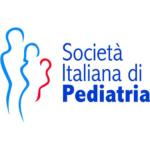
Avoid as much as possible the closure of educational services and schools by carefully assessing the need for it with the competent authorities, in order to protect the psychophysical health and promote the development of children and adolescents.
In pediatric age, SARS-CoV-2 infection is less severe than in adults. Children become infected predominantly within families, while transmission within educational settings is less frequent. During a COVID-19 pandemic, stressful factors such as lack of social contacts and loss of school routines have been found to be associated with neuropsychiatric sequelae, even in the long term. In particular, several studies have found high levels of anxiety, depression, and post-traumatic stress disorder in quarantined children and adolescents. For these reasons, among the various interventions of social isolation implemented as preventive measures to contain the epidemic, the closure of educational services and schools is the one that most needs to be evaluated with the competent authorities, in view of the important social, behavioral and psychological fallout.
Sources
1. European Centre for Disease Prevention and Control. COVID-19 in children and the role of school settings in transmission - first update. Disponibile al sito: https://www.ecdc.europa.eu/en/publications-data/children-and-school-settings-covid-19-transmission Ultimo accesso: 10 gennaio 2021.
2. Esposito S, Giannitto N, Squarci A, Neglia C, Argentiero A, Minichetti P, Cotugno N, Principi N. Development of psychological problems among adolescents during school closures because of the COVID-19 lockdown phase in Italy: a cross-sectional survey. Front Pediatr. 2021 Jan 22;8:628072.
3. Ludvigsson JF, Engerström L, Nordenhäll C, Larsson E. Open Schools, Covid-19, and Child and Teacher Morbidity in Sweden. N Engl J Med. 2021; Epub Jan 6.
Download
PDFAttention. Please note that these items are provided only for information and are not intended as a substitute for consultation with a clinician. Patients with any specific questions about the items on this list or their individual situation should consult their clinician.


Recent Comments